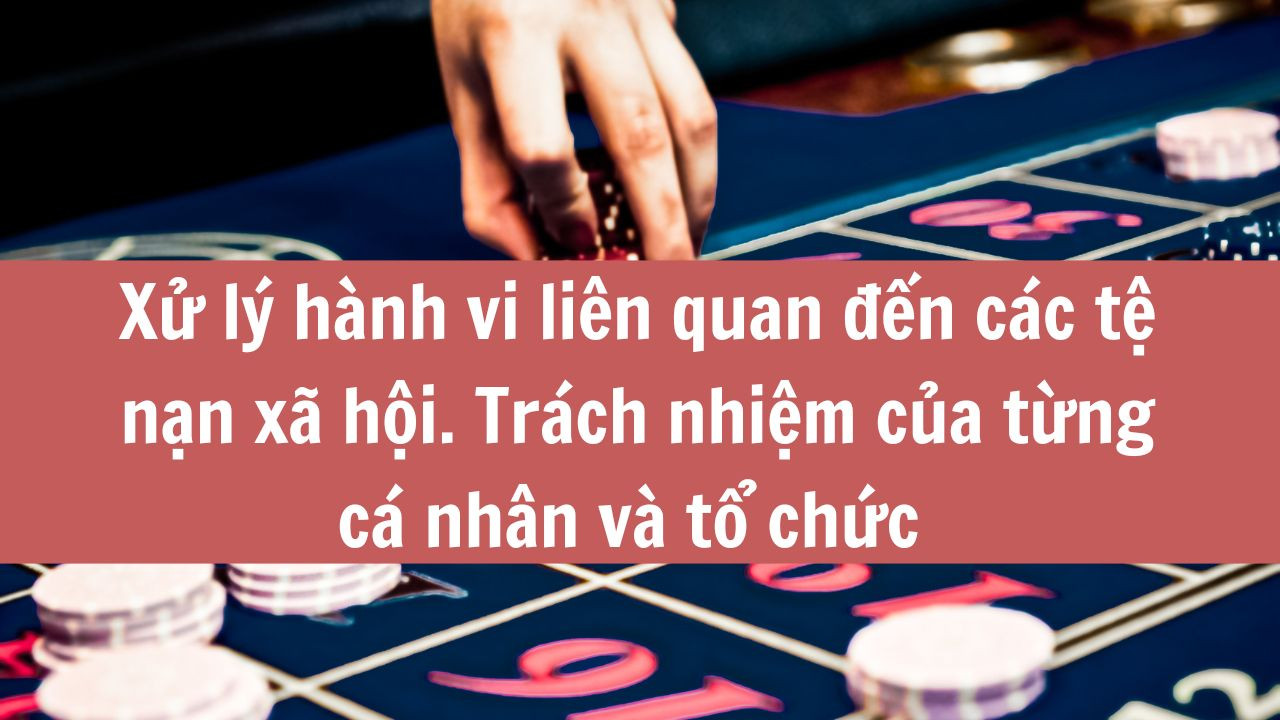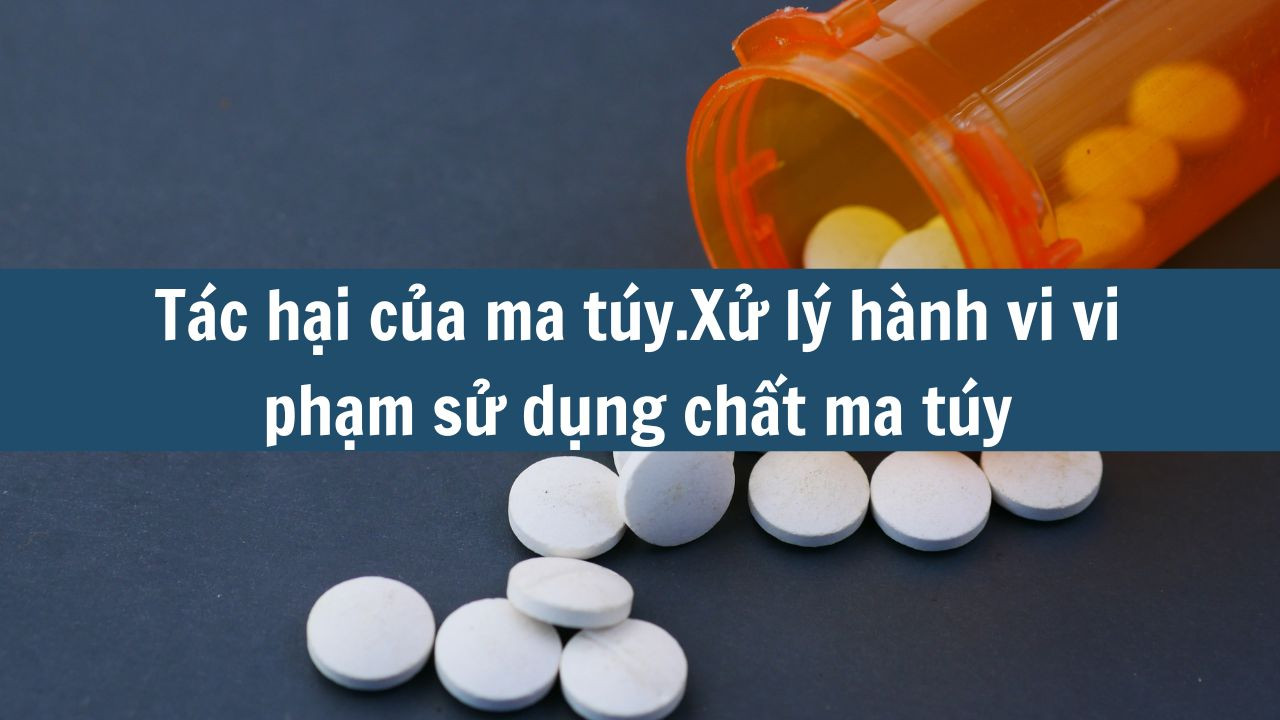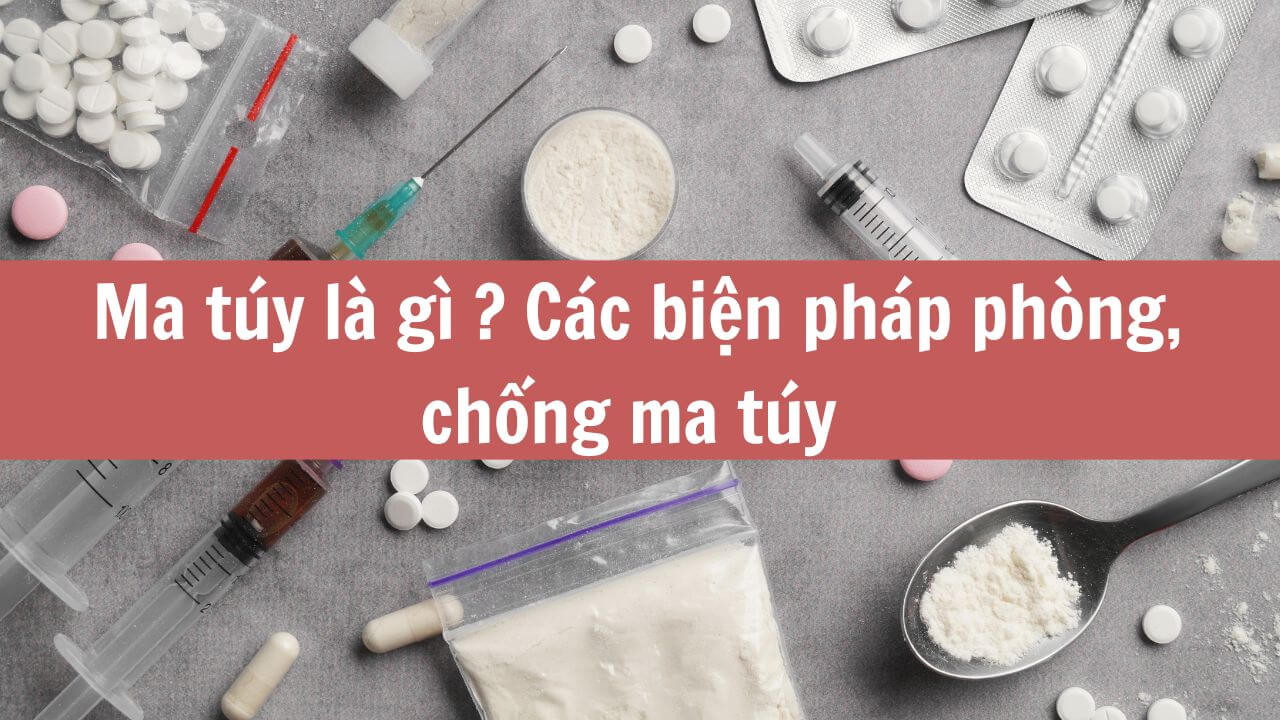 Tìm kiếm
Tìm kiếm
Chương VI Luật Phòng, chống ma túy 2021: Quản lý nhà nước về phòng, chống ma túy
| Số hiệu: | 73/2021/QH14 | Loại văn bản: | Luật |
| Nơi ban hành: | Quốc hội | Người ký: | Nguyễn Thị Kim Ngân |
| Ngày ban hành: | 30/03/2021 | Ngày hiệu lực: | 01/01/2022 |
| Ngày công báo: | 30/04/2021 | Số công báo: | Từ số 567 đến số 568 |
| Lĩnh vực: | Trách nhiệm hình sự | Tình trạng: | Còn hiệu lực |
TÓM TẮT VĂN BẢN
Văn bản tiếng việt
Văn bản tiếng anh
1. Xây dựng và tổ chức thực hiện chiến lược, chủ trương, chính sách, kế hoạch về phòng, chống ma túy.
2. Ban hành và tổ chức thực hiện các văn bản quy phạm pháp luật về phòng, chống ma túy.
3. Tổ chức bộ máy, đào tạo, bồi dưỡng người làm công tác phòng, chống ma túy.
4. Kiểm soát các hoạt động hợp pháp liên quan đến ma túy.
5. Thực hiện công tác cai nghiện ma túy và quản lý sau cai nghiện ma túy.
6. Tổ chức đấu tranh phòng, chống ma túy.
7. Thực hiện thống kê nhà nước về phòng, chống ma túy.
8. Tổ chức nghiên cứu, ứng dụng tiến bộ khoa học và công nghệ về phòng, chống ma túy.
9. Tổ chức tuyên truyền, giáo dục về phòng, chống ma túy.
10. Hợp tác quốc tế về phòng, chống ma túy.
11. Khen thưởng, kiểm tra, thanh tra, giải quyết khiếu nại, tố cáo và xử lý vi phạm pháp luật về phòng, chống ma túy.
1. Chính phủ thống nhất quản lý nhà nước về phòng, chống ma túy.
2. Bộ Công an là cơ quan đầu mối giúp Chính phủ thực hiện quản lý nhà nước về phòng, chống ma túy.
3. Các Bộ, cơ quan ngang Bộ, cơ quan thuộc Chính phủ, trong phạm vi nhiệm vụ, quyền hạn của mình, có trách nhiệm thực hiện và phối hợp với cơ quan, tổ chức có liên quan trong phòng, chống ma túy.
4. Ủy ban nhân dân các cấp, trong phạm vi nhiệm vụ, quyền hạn của mình, thực hiện quản lý nhà nước về phòng, chống ma túy tại địa phương.
1. Ban hành theo thẩm quyền hoặc trình cơ quan nhà nước có thẩm quyền ban hành văn bản quy phạm pháp luật về phòng, chống ma túy.
2. Chủ trì, phối hợp với cơ quan, tổ chức có liên quan trong phòng, chống ma túy; tổ chức tiếp nhận và xử lý thông tin tội phạm về ma túy; kiểm soát các hoạt động hợp pháp liên quan đến ma túy theo thẩm quyền.
3. Tổ chức công tác giám định chất ma túy và tiền chất.
4. Đào tạo, bồi dưỡng người làm công tác điều tra, đấu tranh phòng, chống tội phạm về ma túy.
5. Hướng dẫn việc lập danh sách người sử dụng trái phép chất ma túy, người nghiện ma túy, người bị quản lý sau cai nghiện ma túy.
6. Chủ trì thực hiện thống kê nhà nước về phòng, chống ma túy; quản lý thông tin tội phạm về ma túy, người sử dụng trái phép chất ma túy, người nghiện ma túy, người bị quản lý sau cai nghiện ma túy và kết quả kiểm soát các hoạt động hợp pháp liên quan đến ma túy.
7. Thực hiện hợp tác quốc tế về phòng, chống ma túy.
1. Ban hành theo thẩm quyền hoặc trình cơ quan nhà nước có thẩm quyền ban hành văn bản quy phạm pháp luật về phòng, chống ma túy.
2. Chủ trì, phối hợp với cơ quan, tổ chức có liên quan và chính quyền địa phương hướng dẫn việc tổ chức cai nghiện ma túy tự nguyện tại gia đình, cộng đồng, cai nghiện ma túy tại cơ sở cai nghiện ma túy và quản lý sau cai nghiện ma túy.
3. Hướng dẫn việc thành lập, giải thể và tổ chức hoạt động của cơ sở cai nghiện ma túy công lập.
4. Đào tạo, bồi dưỡng người làm công tác cai nghiện ma túy, quản lý sau cai nghiện ma túy.
5. Hướng dẫn, chỉ đạo tổ chức thực hiện việc tuyên truyền, giáo dục về phòng, chống ma túy trong hệ thống cơ sở giáo dục nghề nghiệp.
6. Thực hiện hợp tác quốc tế về cai nghiện ma túy.
7. Thống kê người nghiện ma túy đang cai nghiện ma túy tự nguyện tại gia đình, cộng đồng, cai nghiện ma túy tại cơ sở cai nghiện ma túy.
1. Ban hành theo thẩm quyền hoặc trình cơ quan nhà nước có thẩm quyền ban hành văn bản quy phạm pháp luật về phòng, chống ma túy.
2. Tổ chức thực hiện kế hoạch phòng, chống ma túy ở khu vực biên giới trên đất liền, trên biển, vùng tiếp giáp lãnh hải, vùng đặc quyền kinh tế và thềm lục địa.
3. Chỉ đạo lực lượng Bộ đội Biên phòng, Cảnh sát biển Việt Nam chủ trì, phối hợp với cơ quan, tổ chức có liên quan, lực lượng chức năng để tiếp nhận, xử lý thông tin tội phạm về ma túy, phát hiện, ngăn chặn, đấu tranh với các hành vi vi phạm pháp luật về ma túy, kiểm soát các hoạt động hợp pháp liên quan đến ma túy tại khu vực, địa bàn quy định tại khoản 2 Điều này theo quy định của Luật này và quy định khác của pháp luật có liên quan.
4. Đào tạo, bồi dưỡng người làm công tác chuyên trách phòng, chống tội phạm về ma túy của Bộ đội Biên phòng và Cảnh sát biển Việt Nam.
5. Thống kê người nghiện ma túy trong trại giam, trại tạm giam, nhà tạm giữ do Bộ Quốc phòng quản lý.
1. Ban hành theo thẩm quyền hoặc trình cơ quan nhà nước có thẩm quyền ban hành văn bản quy phạm pháp luật về phòng, chống ma túy.
2. Thực hiện việc nghiên cứu thuốc và phương pháp cai nghiện ma túy; cấp, thu hồi giấy phép lưu hành thuốc, phương pháp cai nghiện ma túy; hỗ trợ về người, chuyên môn kỹ thuật y tế để cai nghiện ma túy.
3. Thống kê người đang tham gia điều trị nghiện các chất dạng thuốc phiện bằng thuốc thay thế.
Chỉ đạo cơ quan Hải quan thực hiện hoạt động phòng, chống ma túy theo quy định của Luật này và quy định khác của pháp luật có liên quan.
STATE MANAGEMENT OF PREVENTION AND CONTROL OF NARCOTIC SUBSTANCES
Article 44. Contents of state management of prevention and control of narcotic substances
1. Formulate strategies, guidelines, policies and plans for prevention and control of narcotic substances and organize implementation thereof.
2. Promulgate and organize implementation of legislative documents on prevention and control of narcotic substances.
3. Organize apparatus, and provide training and refresher courses for persons in charge of prevention and control of narcotic substances.
4. Control legal activities related to narcotic substances.
5. Carry out rehabilitation and post-rehabilitation management.
6. Organize prevention and control of narcotic substances.
7. Produce state statistics on prevention and control of narcotic substances.
8. Organize research on and application of scientific and technological advances in relation to prevention and control of narcotic substances.
9. Raise awareness of prevention and control of narcotic substances.
10. Carry out international cooperation in prevention and control of narcotic substances.
11. Give commendation, perform inspections, settle complaints and denunciations and impose penalties on regulatory violations concerning prevention and control of narcotic substances.
Article 45. Responsibilities for state management of prevention and control of narcotic substances
1. The Government shall unify state management of prevention and control of narcotic substances.
2. The Ministry of Public Security shall take charge of and assist the Government in state management of prevention and control of narcotic substances.
3. Ministries, ministerial-level agencies and Governmental agencies shall carry out and cooperate with relevant regulatory bodies and organizations in prevention and control of narcotic substances intra vires.
4. People’s Committees at all levels shall exercise state management of prevention and control of narcotic substances in their localities intra vires.
Article 46. Responsibilities of Ministry of Public Security
1. Promulgate legislative documents on prevention and control of narcotic substances within its competence or propose these documents to competent authorities for promulgation.
2. Take charge and cooperate with relevant regulatory bodies and organizations in prevention and control of narcotic substances; organize receipt and processing of information on crime related to narcotic substances; and control legal activities related to narcotic substances intra vires.
3. Organize examination of narcotic substances and precursors.
4. Provide training and refresher courses for persons in charge of investigation into and prevention and control of crime related to narcotic substances.
5. Provide guidelines for formulation of lists of drug users, drug addicts and persons subject to post-rehabilitation management.
6. Take charge of state statistics on prevention and control of narcotic substances; manage information on crime related to narcotic substances, drug users, drug addicts and persons subject to post-rehabilitation management and results of control of legal activities related to narcotic substances.
7. Carry out international cooperation in prevention and control of narcotic substances.
Article 47. Responsibilities of Ministry of Labor - War Invalids and Social Affairs
1. Promulgate legislative documents on prevention and control of narcotic substances within its competence or propose these documents to competent authorities for promulgation.
2. Take charge and cooperate with relevant regulatory bodies and organizations and local governments in providing guidance on voluntary rehabilitation in families and communities, rehabilitation in rehabilitation centers and post-rehabilitation management.
3. Provide guidelines for establishment, dissolution and organization of operations of public rehabilitation centers.
4. Provide training and refresher courses for persons in charge of rehabilitation and post-rehabilitation management.
5. Provide guidance and direction for raising awareness of prevention and control of narcotic substances in vocational education institutions.
6. Carry out international cooperation in rehabilitation.
7. List drug addicts undergoing voluntary rehabilitation in families and communities and rehabilitation in rehabilitation centers.
Article 48. Responsibilities of Ministry of National Defense
1. Promulgate legislative documents on prevention and control of narcotic substances within its competence or propose these documents to competent authorities for promulgation.
2. Organize implementation of plans for prevention and control of narcotic substances along land boundaries and maritime boundaries, in contiguous zones and exclusive economic zone and on continental shelves.
3. Direct the Border Guard and Vietnam Coast Guard to take charge and cooperate with relevant regulatory bodies and organizations in receiving and handling information on crime related to narcotic substances, detecting, preventing and fighting against violations against regulations of law on narcotic substances, and controlling legal activities related to narcotic substances in the areas mentioned in Clause 2 of this Article in compliance with regulations of this Law and other relevant law provisions.
4. Provide training and refresher courses for persons in charge of prevention and control of crime related to narcotic substances of the Border Guard and Vietnam Coast Guard.
5. List drug addicts in prisons, detention centers and custody centers under the management of the Ministry of National Defense.
Article 49. Responsibilities of Ministry of Health
1. Promulgate legislative documents on prevention and control of narcotic substances within its competence or propose these documents to competent authorities for promulgation.
2. Conduct research on drugs and methods for rehabilitation; grant and revoke marketing authorizations for rehabilitation drugs and licenses for rehabilitation methods; provide medical assistance and healthcare workers for rehabilitation.
3. List persons currently receiving opioid substitution therapy.
Article 50. Responsibilities of Ministry of Finance
Direct customs authorities to prevent and control narcotic substances in accordance with this Law and other relevant provisions of law.
Cập nhật
Bài viết liên quan
Xử lý hành vi liên quan đến các tệ nạn xã hội. Trách nhiệm của từng cá nhân và tổ chức

Xử lý hành vi liên quan đến các tệ nạn xã hội. Trách nhiệm của từng cá nhân và tổ chức
Phòng tránh tệ nạn xã hội không chỉ là việc của một cá nhân, tổ chức mà cần phải có sự phối hợp chung tay của cả cộng đồng. Việc phòng tránh tệ nạn xã hội là trách nhiệm của toàn hệ thống chính trị kết hợp với người dân. 06/11/2024Tác hại của ma túy. Xử lý hành vi vi phạm sử dụng chất ma túy

Tác hại của ma túy. Xử lý hành vi vi phạm sử dụng chất ma túy
Ma túy là một hiểm họa lớn nhưng chúng ta hoàn toàn có thể chiến thắng. Hãy cùng nhau chung tay đẩy lùi tệ nạn này để xây dựng một xã hội lành mạnh và văn minh. Sử dụng ma túy là một hành vi nguy hiểm, gây ra nhiều hậu quả nghiêm trọng cho bản thân, gia đình và xã hội. Ma túy không chỉ gây hại cho sức khỏe mà còn làm suy yếu ý chí, phá hủy cuộc sống của người sử dụng. 05/11/2024Ma túy là gì? Các biện pháp phòng, chống ma túy


 Luật Phòng, chống ma túy 2021 (Bản Pdf)
Luật Phòng, chống ma túy 2021 (Bản Pdf)
 Luật Phòng, chống ma túy 2021 (Bản Word)
Luật Phòng, chống ma túy 2021 (Bản Word)